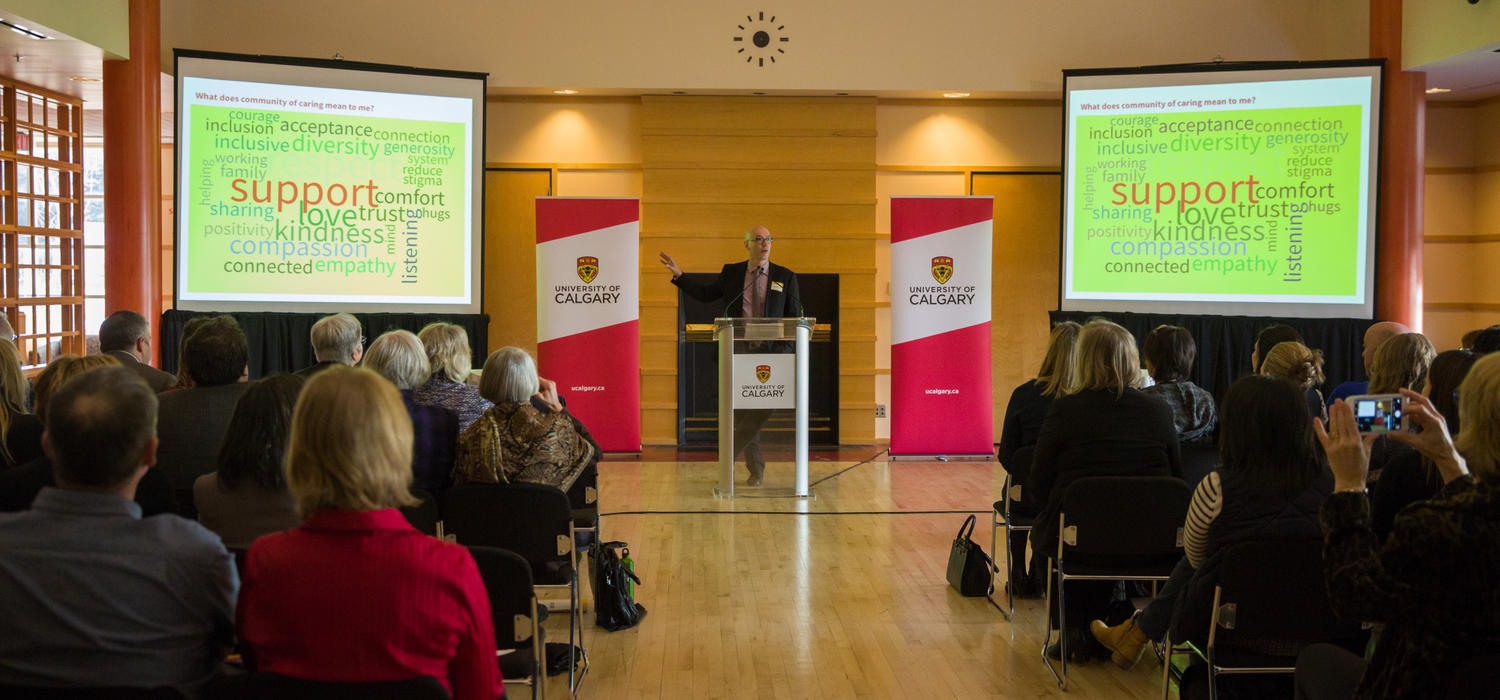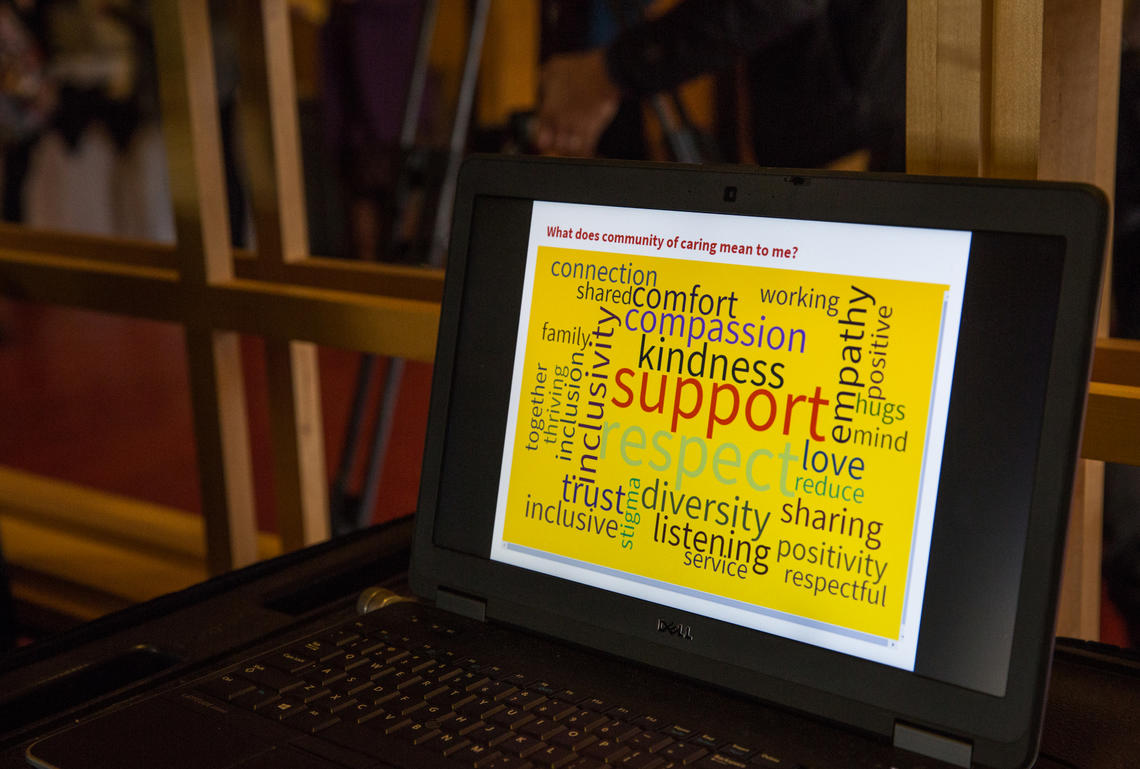
Sheldon Kennedy, Respect Group Inc. and another event guest stand in support of the strategy.
Riley Brandt, University of Calgary
Dec. 8, 2015

The University of Calgary unveiled an expansive new Campus Mental Health Strategy Monday. Aimed at supporting the mental health and well-being of all students, faculty and staff, the strategy strengthens the university’s commitment to building “a community of caring.” Pictured above is emcee Patrick Finn making welcoming remarks to the packed room at the Campus Mental Health Strategy launch.
“The University of Calgary includes a diverse community of individuals who come together to learn, work and flourish,” says Elizabeth Cannon, president and vice-chancellor. “Through this new campus mental health strategy, we aim to become a leader, locally and across Canada, in promoting a healthy campus community.”
A Mental Health Task Force, including a steering committee and multi-stakeholder working group, was created in 2014. Representatives from across the university included mental health experts and practitioners as well as students, senior leadership, professors, executive, and community members. The task force consulted broadly with individuals and groups, both internal and external to campus. The strategy was approved by the General Faculties Council and Board of Governors in October.

Sheldon Kennedy, Respect Group Inc. and another event guest stand in support of the strategy.
Riley Brandt, University of Calgary
Need for strategy apparent from campus-wide survey
“This strategy addresses the holistic needs of our entire campus community,” says Dru Marshall, provost and vice-president (academic), the driving force behind the strategy’s creation. “It recognizes the importance of support, collaboration and work-life balance for optimizing mental health and well-being.”
Marshall adds, “When you consider that the University of Calgary community includes more than 32,000 students and 6,500 faculty and staff, we have an opportunity — and a responsibility — to do all that we can to enhance the well-being of a significant segment of Calgary’s population.”
Mental health issues have been growing across Canada. The need for the strategy at the University of Calgary became increasingly apparent when the results of a 2013 campus-wide student survey were released. It was discovered that 90 per cent of students who responded to the survey had felt overwhelmed, 64 per cent felt lonely, 58 per cent had felt overpowering anxiety and eight per cent reported they seriously considered suicide at some point during the previous 12 months. It was further revealed that 18 per cent of students reported having been diagnosed or treated by a professional for a mental health condition.
For faculty and staff, the top reasons for accessing counselling include stress, anxiety and depressive symptoms. In fact, mental health is the number-one reason University of Calgary employees access the Employee and Family Assistance program.

A word cloud formed from personal, and often insightful, thoughts of guests.
Riley Brandt, University of Calgary
Building a community of caring
The campus mental health strategy is purposely aspirational, with an intention of building a “community of caring” where talking about mental health and well-being is encouraged, stigma around mental illness is reduced, support is assured and community members can realize their full potential, individually and collectively.
The task force used an approach based on the World Health Organization’s Healthy for All strategy that comprises six strategic focus areas:

President Elizabeth Cannon, Provost Dru Marshall and other speakers gather for a group photo.
Riley Brandt, University of Calgary
Identifying areas for improvement
The strategy includes 28 recommendations — identifying areas for improvement and consideration. Recommendations under each strategic focus area fall into three broad categories: those programs and initiatives that currently exist that we should expand, those that we should enhance, and areas are identified where we should develop new initiatives and programs.
Implementation of the strategy will start in early 2016 and continue over the next several years.
The Campus Mental Health Strategy will provide students, faculty and staff with the support and services needed to optimize their mental health and well-being. It complements the research achievements of our scholars through the Brain and Mental Health research strategy, led by the Hotchkiss Brain Institute. Brain and Mental Health is one of the six research themes identified in the Strategic Research Plan.
The bold vision of the Campus Mental Health Strategy will not be accomplished without the support of and collaboration with our community partners in government, community organizations, families and individuals who all play a role in creating a place where everyone can flourish.
Read the Campus Mental Health Strategy website for more news and updates.